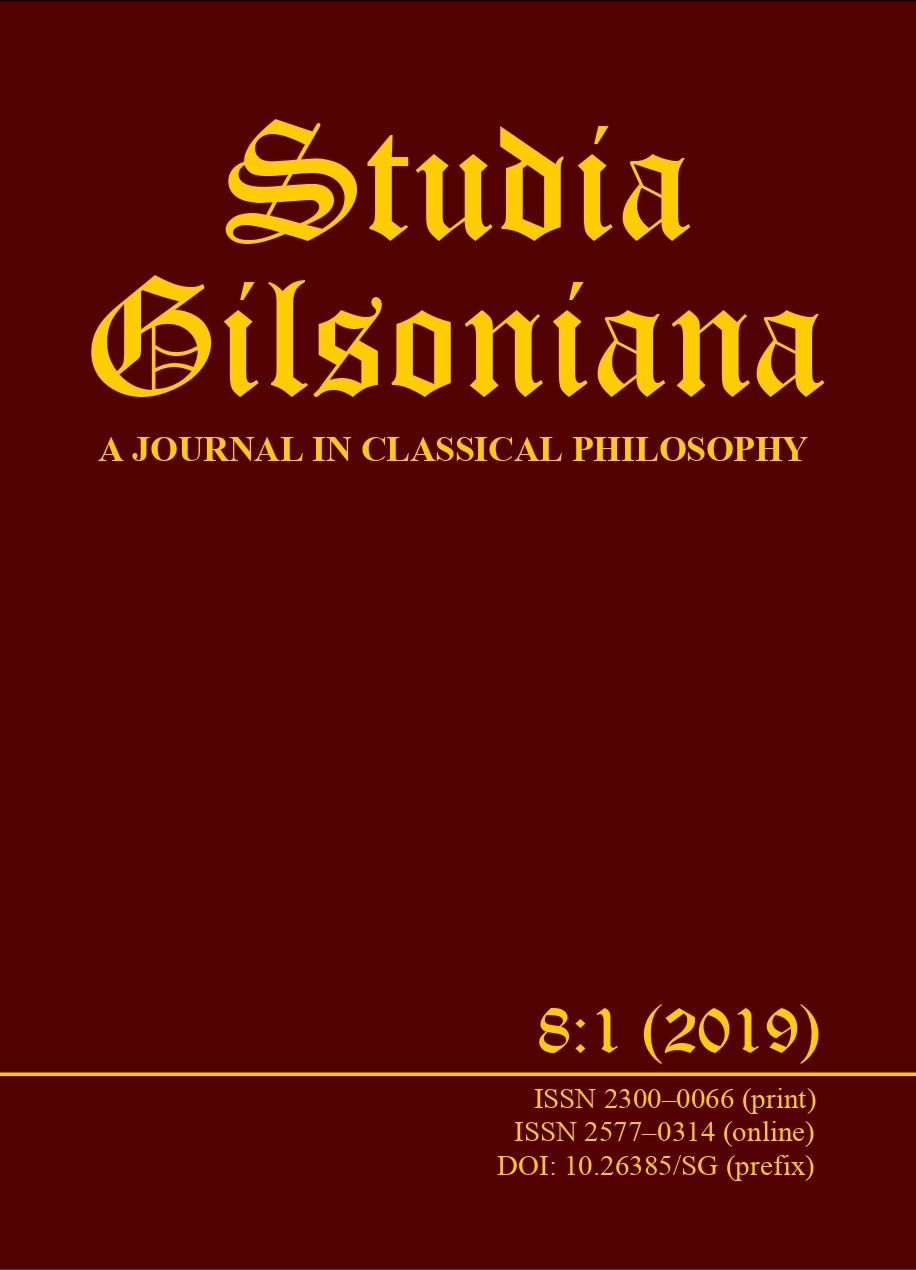Gilson’s Notion of Theologism in The Unity of Philosophical Experience and Reason and Revelation in the Middle Ages
Gilson’s Notion of Theologism in The Unity of Philosophical Experience and Reason and Revelation in the Middle Ages
Author(s): James D. CapehartSubject(s): Social Philosophy, Special Branches of Philosophy
Published by: International Étienne Gilson Society
Keywords: Gilson; Bonaventure; Anselm; theologism; Christian theology; Christian philosophy; Christianity; faith; reason;
Summary/Abstract: The author examines Gilson’s development of the term “theologism” from his 1937 The Unity of Philosophical Experience and his 1938 Reason and Revelation in the Middle Ages. This term is important for understanding Gilson’s developing doctrine on Christian philosophy. The treatment of it helps to show how Gilson’s understanding of Christian philosophy does not entail the formal conflation of philosophy with Christianity—as some have accused. In fact, the knowledge of what theologism is—referring primarily to the misuse of philosophy by the theologian—helps to set the stage for seeking an understanding of the proper relationship of Christianity to philosophy, a unity which maintains formal distinction. This knowledge also provides a hermeneutical tool for the proper interpretation of Gilson’s later writings on Christian philosophy.
Journal: Studia Gilsoniana
- Issue Year: 8/2019
- Issue No: 1
- Page Range: 11-44
- Page Count: 34
- Language: English

